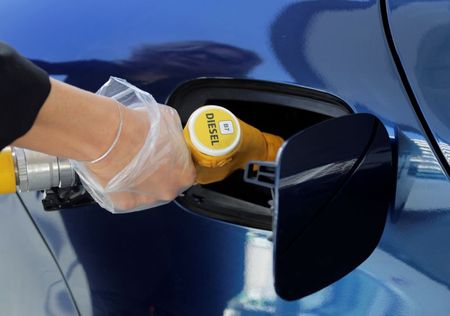By Yuka Obayashi
TOKYO (Reuters) – Oil prices climbed on Tuesday, extending gains from the previous day, as optimism over the reopenings of the U.S. and European economies outweighed fears of slower fuel demand in Asia due to surging COVID-19 cases and a new wave of restrictions.
Brent crude oil futures were up 20 cents, or 0.3%, at $69.66 a barrel by 0231 GMT, while West Texas Intermediate (WTI) was up 19 cents, or 0.3%, at $66.46 a barrel.
Both contracts rose more than 1% on Monday.
“The market remained in a tight trading range amid the tug-of-war between worries over spreading coronavirus infection cases in Asia and optimism from economic reopenings in Europe and the United States thanks to vaccinations,” said Hiroyuki Kikukawa, general manager of research at Nissan Securities.
“Also, some expectations that negotiations between Iran and the United States may lead to a resumption of Iranian oil exports is limiting the upside of oil prices,” he said.
The British economy reopened on, giving 65 million people a measure of freedom after a four-month COVID-19 lockdown. And with accelerating vaccination rates, France and Spain have relaxed restrictions, and Portugal and the Netherlands have opened up travel.
In the United States, New York state will no longer require masks in most public spaces for people fully vaccinated against COVID-19 as of Wednesday, and other regions are opening up their economies as well.
In Asia in contrast, Singapore reported the highest number of local infections in months and Taiwan saw a spike in cases, and both countries have reinstituted lockdown measures.
In India, the second-hardest hit by the pandemic, domestic sales of gasoline and diesel by state refiners plunged by a fifth in the first half of May from a month earlier as pandemic lockdowns hit industrial activities and consumption, preliminary data showed on Monday.
With regard to the Iran-U.S. talks, as the United States tries to reinstate the 2015 Iran nuclear deal, it is tiptoeing through a minefield of sanctions put down by former U.S. President Donald Trump after he abandoned the deal three years ago.
(Reporting by Yuka Obayashi; Editing by Tom Hogue)





